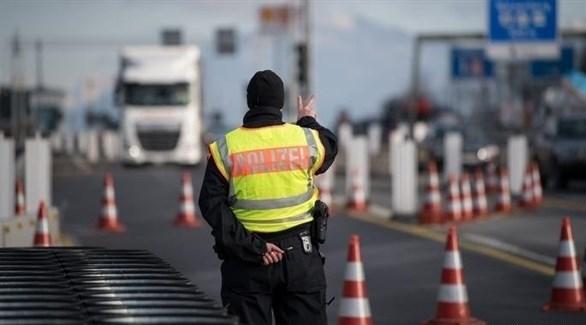
While voices came from the Christian Democrats in Germany calling for more border controls to limit the flow of refugees, the German Ministry of the Interior did not see that there was a need to discuss such a measure at the present time.
The flow of refugees to Germany has increased recently due to the Russian war on Ukraine.
Alexander Throm, an expert on internal affairs in the parliamentary bloc of the Christian Democrats said: “Germany is going through the worst immigration crisis in years,” and “the federal government still refuses to protect and control our borders,” noting that redistribution between states does not help, pointing out that the lack of housing space, schools, and medical care is not limited to specific states.
A spokesman for the ministry said in response to an inquiry about re-imposing internal border controls temporarily that it is not under discussion at the present time, according to “Info Migrants” website.
The Federal Ministry of the Interior also refused to comment on the proposal of the Senator for Integration in the state of Berlin of the Social Democratic Party, Cansel Kiziltepe, proposing setting up a new mechanism for the distribution of asylum seekers and refugees within Germany, the ministry indicated that this is a matter for the states.
The spokesman stressed that only the states are competent in this regard, explaining that according to the “Königstein Key” agreement, each state determines its share in accepting refugees.
Cansel Kiziltepe had said in previous statements to the German News Agency: “We need to fix the Königstein Key. We need a special rule for states like Berlin,” justifying this by the fact that states like Berlin are overpopulated and have only limited space to accommodate new refugees. According to data from the Federal Office for Migration and Refugees, Berlin’s share of receiving refugees is 2.5 percent.
German Interior Minister Nancy Faeser had rejected the idea of imposing fixed border controls on the borders with Poland and the Czech Republic to reduce irregular immigration, in contrast to her position on Austria.
The German Minister of the Interior decided, in a letter to the European Commission, last April, to inform the latter that she would expand her land borders with Austria for another half year.
In a letter obtained by “Schengen” website, Faeser insists that the decision is necessary due to the lack of a sustained decline in irregular migration to central and western Europe.
In her letter to the Commission, the minister wrote: It is alarming that in 2022 the number of irregular migrations detected at the external borders of the European Union is the highest since 2016, noting that Germany was once again the main destination in Europe last year for irregular migrants.
Statistics from the German Ministry of the Interior indicate that the number of people entering illegally across the German-Polish border fluctuates, and unauthorized entry operations have decreased sharply since they peaked in September 2022 at the German-Czech border.





